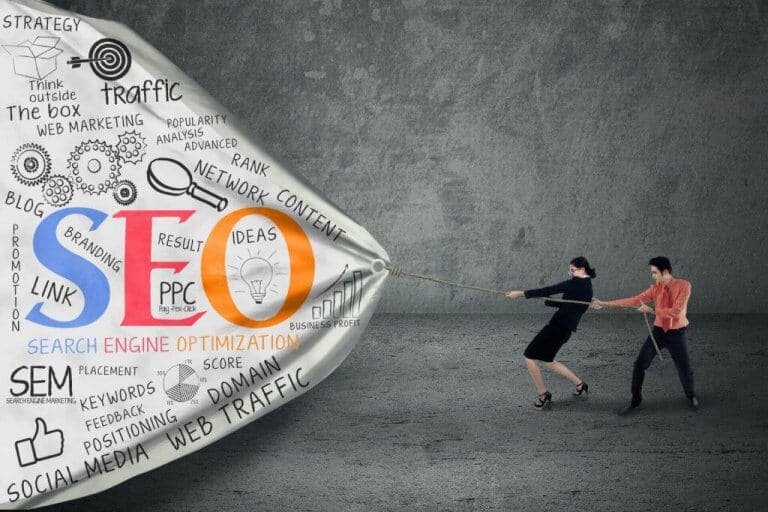Although there has been a lot of changes to the SEO game, some basic elements remain unchanged. We’ll focus on the two most important ones in this post, and they are Title Tags and Meta Descriptions.
Highlights:
- Title tags and meta descriptions must be optimized to have a perfect SEO statistic.
- Title tags and meta descriptions are both important for SEO.
- A title length within 50-60 characters is good for optimizing by Google.
- Keep people in mind when optimizing.
If you’ve done SEO, whether you’re new or a professional, you’ll understand that it’s not really an easy thing. However, with the right tools, you’ll succeed in your SEO game perfectly and beat your competitors to the top pages. And as you get used to it, it becomes easy.
Moz explains, “title tags are the second most important on-page for SEO, after content.” (https://moz.com/learn/seo/title-tag)
Oftentimes, a lot of folks have the right page title tags & target the right keywords but fail in crafting a perfect meta description. That’s poorly!
Title tags are just one of the tools of SEO, a meta description is another. And the two must be perfect before you can say your SEO game is accurate.
Optimizing your page is key to a better ranking on Search Engine Result Pages (SERPs). And your Title Tags and Meta descriptions play the biggest share.
What are Title Tags and Meta Descriptions?
Title tags are simply the headline on the Search Engine Result Pages (SERPs).
For example, if you search on Google for “window cleaner in Bradford,” a lot of pages will pop up. And one of them will likely be “Your Window Cleaner in Bradford and surrounding areas.” While this is an example of a page title tag, the former is a long-tail keyword.
Just as you’ve seen this, your page will display in a similar manner to search engines and users, provided your page is optimized for SEO.
A Meta Description, on the other hand, is a sentence or two that adds more clarity to a title tag. Meaning, it contains detailed information than the title tag.
Don’t forget! Title tags and meta descriptions are equally important since they both tell search engines and users what your page is about.
Title tags and meta descriptions are bits of HTML code in the header of a page.
Why are they so Important?
There are two main reasons title tags are so important. Have a look:
- Relevance to human and SERPs
First, among others, a title tag optimization gives clarity to people and SERPs. Having a clear title page proves that your page is relevant to what people are searching for. Plus, it gives SERPs the impression that your page is relevant – resulting in a better ranking.
- Browser Tabs
Keep in mind that your title tags are displayed at the top of web browser tabs. This helps folks that have a lot of active tabs as they can easily find your page among the browser tabs.
Also, title tags are relevant to social pages (external websites) such as Facebook or Twitter. They are displayed when your page is shared.
How to Write a good title tag?
If you want to write a perfect title tag, below are some guidelines and tips to keep in mind:
#1 Title Length
A title length within 50-60 characters is good for optimizing by Google. If your title is more than 60 characters, search engines such as Google and Bing may cut it off by adding an ellipsis (“…”). That way, unfortunately, your keyword or important catchy phrase may be cut off. And this brings us to the next tip to keep in mind when writing a title tag “Putting important keywords first.”
#2 Put Important Keywords first
Usually, when keywords appear closer to the beginning of a page title tag, they may have an impact on search rankings.
Moz reports that user experience research shows that people may scan as few as the first two words of a headline. ((https://moz.com/learn/seo/title-tag)
#3 Avoid Keyword-stuffing
There may be no penalty for long titles but there’s always for a keyword-stuffed title. Google never fails to penalize a page title tag that is keyword stuffed.
For example, “Your Window Cleaner in Bradford and surrounding areas” will likely have its keyword as “Window Cleaner in Bradford.” Well, this is a long-tail keyword (which we’ll discuss in a new post). However, observe that this keyword only appeared once. That’s a good one!
#4 Keep Your Customers in mind
One of the things you should never forget when writing a page, including the title tag & meta description, is that you’re not writing for bots but for humans. In other words, don’t put all your focus on impressing SEO, impress your target market first. Think about things like user experience, readability check, conveying positive and accurate messages possible.
If you would like to use the text or infographic feel free to as long as you place a link back to this page to give credit

